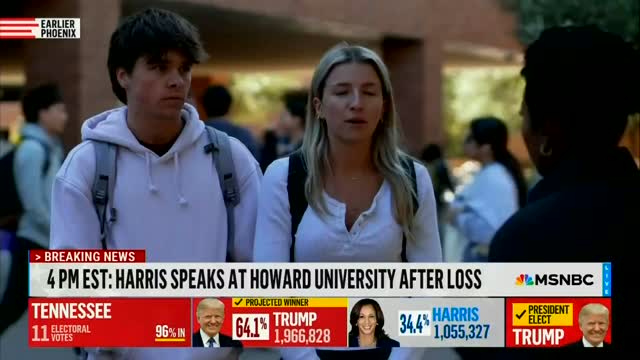Post-Election Reading List
The readings below are not meant to be anti-Trump or anti-GOP. They are attempts to inform people's expectations.

I'll update this list as I encounter media both quality and necessary.
You might ask "Why bother with a reading list? Don't we know everything we need to know?" The encounters I've had recently are frightfully ignorant. People are only now googling what a tariff is, long after Trump promised they would pay for everything. Views on the economy will shift by early February, if not the week of Inauguration Day. And a few surveys have found that a majority of Americans think mass deportation is a good thing, not a crime against humanity.
I believe it important to address that not a lot of people acknowledge that 2016-2020 did not serve many Americans well. A number of us did not make it. I think a major reason why the U.S. public cannot attribute causality is that it does not stop to ask how things work. "What does Trump and those around him want from us?" is a real question. I hear other candidates getting that kind of scrutiny, but in most cases, they're hit with so much cynicism it fails to be useful. Whether one does not ask the question or it is asked without expecting a serious answer, the question has ceased to exist.
To make this clearer, a lot of people in Trump's orbit have talked about a national abortion ban. As you'll read below, there are quite a few proposals to limit abortion access nationally even further. This Arizona State student, though, was convinced Trump would not ban abortion. She says she's happy he left it up to the states, as if that has not put it in a position where it could be completely outlawed:

The readings below are not meant to be anti-Trump or anti-GOP. They are attempts to inform people's expectations. Whether pro-life or pro-choice, it is hard to take someone seriously if they think abortion is merely a matter of states' rights. That does not address either what a right is or what is actually happening on the ground. What you'll find in the list below are reports about how things worked in Trump's first term and what he and those around him have said they want to do this time. I know some people are really curious about what's going to happen even though they tuned out the campaign in key respects. You'll find these links useful in walking them through some tough issues.
- NPR, "What Trump's first 100 days in office could look like" – this dramatically undersells how dangerous things are. However, there are important takeaways. Trump says he will close the border with Mexico on Day 1 of his administration; he also plans on launching the "largest domestic deportation operation in American history." This also mentions Schedule F and the replacement of the civil service with political partisans, as well as the statements by Republicans that they will "aggressively" work for POTUS' agenda. That last point leads to an essential bit of information which has largely been forgotten...
- Trump is legally immune as long as he invokes his "core constitutional powers" – it's really hard to say the Constitution is functional when the President-elect has already been granted immunity regarding nearly anything he does. I think serious scholars should revisit the term "post-constitutional" and ask what it means and what circumstances it applies to. Mark Joseph Stern's "Don't Believe John Roberts. The Supreme Court Just Made the President a King" is also essential reading on this topic.
- Radley Balko, "Trump's deportation army" – What does it look like if you build the capacity to deport 15 million people? It means hundreds of thousands of armed personnel, camps, and violent encounters. Balko: "The deportation army Miller and Trump want to assemble would be larger than any police force in the federal government, and if they get their way, would likely exceed the size of the U.S. Army itself. It would be populated with Trump loyalists excited by the idea of breaking up families and dumping peaceful undocumented people in countries they barely know."
- NBC, "What Trump's Victory Could Mean For the Future of Abortion Rights" – a national abortion ban has not entirely disappeared from a list of options, but there are many other ways to stop people from having abortions. Abortion medication can be restricted, for example. The administration can also invoke the Comstock Act from 1873. It should be noted that abortion restrictions have resulted in the deaths of various women who could not be treated for miscarriages. It is important to talk about the deaths of Josseli Barnica and Nevaeh Crain. Neither wanted an abortion but could not get care when their pregnancies became deadly. It should also be noted what effect restrictions on abortion have had more generally: A study found "26,313 rape-related pregnancies occurred in Texas during the 16 months after the state legislature banned abortion."
- Caitlin Dickerson's report on the policy of purposely separating families migrating to the U.S. is difficult reading. I've heard interviews with her talking about family separation and it is hard not to start tearing up. It is, obviously, essential to any serious discussion about immigration policy.
- LA Times, "For transgender Americans, Trump's win after a campaign targeting them is terrifying" – [Trump] "said he would sign an executive order upon taking office 'instructing every federal agency to cease all programs that promote the concept of sex and gender transition at any age'; block federal funding to hospitals that provide gender-affirming care; ensure 'severe consequences' for teachers who acknowledge transgender children..."
- John Oliver's episode on Schedule F is very good. It not only dives into Project 2025 but lets you hear from many of the architects in their own words. In short: getting rid of career civil servants and replacing them with political partisans is a problematic idea, especially when it comes to paperwork we depend upon or maintaining a stockpile of nuclear weapons.
Bonus content: Tressie McMillan Cottom speaks powerfully about the factors of gender and race at play in the 2024 election. What does "identity politics" mean, exactly?

